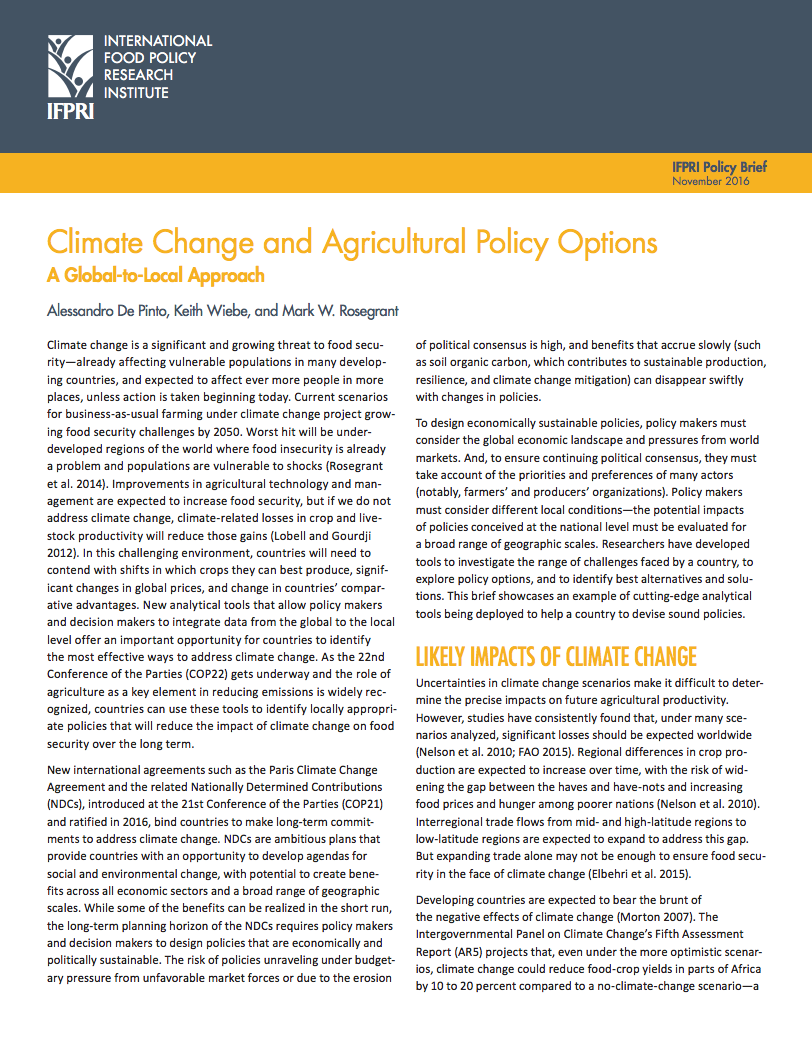Resource information
Climate change is a significant and growing threat to food security—already affecting vulnerable populations in many developing countries, and expected to affect ever more people in more places, unless action is taken beginning today. Current scenarios for business-as-usual farming under climate change project growing food security challenges by 2050. Worst hit will be underdeveloped regions of the world where food insecurity is already a problem and populations are vulnerable to shocks (Rosegrant et al. 2014). Improvements in agricultural technology and management are expected to increase food security, but if we do not address climate change, climate-related losses in crop and livestock productivity will reduce those gains (Lobell and Gourdji 2012). In this challenging environment, countries will need to contend with shifts in which crops they can best produce, significant changes in global prices, and change in countries’ comparative advantages. New analytical tools that allow policy makers and decision makers to integrate data from the global to the local level offer an important opportunity for countries to identify the most effective ways to address climate change. As the 22nd Conference of the Parties (COP22) gets underway and the role of agriculture as a key element in reducing emissions is widely recognized, countries can use these tools to identify locally appropriate policies that will reduce the impact of climate change on food security over the long term.


